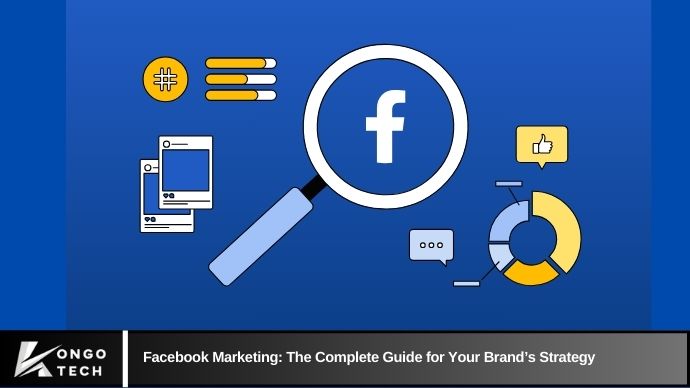Facebook has long been one of the most powerful tools for businesses to connect with their audience, and in 2024, it remains at the forefront of digital marketing. With over 2.9 billion active users and robust advertising tools, Facebook is an essential platform for brand visibility, customer engagement, and ultimately, business growth.
However, effective Facebook marketing requires more than just creating a page and posting content sporadically. To harness the full potential of Facebook, brands must implement a strategic approach to marketing that focuses on both organic and paid strategies. Whether you’re new to Facebook marketing or looking to refine your existing approach, this comprehensive guide will help you understand the key strategies, tactics, and best practices you need to drive success.
Why Facebook is Crucial for Your Brand’s Marketing Strategy
Facebook offers unique advantages that make it a valuable platform for any business:
- Massive Audience Reach: With nearly 3 billion monthly active users, Facebook provides access to an unprecedented audience. Whether your business is targeting local or global markets, Facebook’s vast user base allows you to reach specific demographics with precision.
- Highly Targeted Ads: Facebook’s advanced targeting options enable advertisers to define their audience by location, age, gender, interests, behaviors, and even past interactions with your business. This makes Facebook ads incredibly effective at driving conversions.
- Cost-Effective: Compared to traditional forms of advertising, Facebook ads are relatively affordable. You can control your budget, starting with a small daily amount and scaling up based on performance.
- Engagement and Brand Loyalty: Facebook offers a wide variety of tools for customer engagement, from posts and comments to Facebook Groups and Messenger. With features like these, businesses can build stronger relationships with their audience, improving brand loyalty and customer retention.
- Comprehensive Analytics: Facebook provides robust analytics and reporting tools that allow businesses to track the performance of their posts and ads, helping them fine-tune their campaigns for better results.
Setting Up Your Facebook Business Profile
Before you can dive into Facebook marketing, it’s important to set up a Facebook Business Page. This will serve as the foundation of your brand’s presence on the platform.
How to Set Up Your Facebook Business Page:
- Create a Facebook Account: If you don’t already have a Facebook account, create one. You’ll need this to manage your business page.
- Set Up Your Page: Once logged in, go to Facebook’s “Create Page” section, choose your business category (e.g., local business, company, brand), and fill in the required information, including your business name, contact details, and a profile picture.
- Customize Your Page:
- Cover Photo: Use a high-quality image that represents your brand.
- About Section: Write a compelling description of your business that includes your key offerings and a link to your website.
- Call-to-Action Button: Add a CTA button (e.g., “Shop Now,” “Contact Us”) to guide visitors toward taking action.
Once your page is set up, it’s time to start creating and posting content that will engage your audience.
Understanding Facebook’s Algorithm
Facebook uses a sophisticated algorithm to determine which posts appear in users’ News Feeds. Understanding how this algorithm works is key to crafting content that gets seen by your audience.
Key Factors That Influence Facebook’s Algorithm:
- Engagement: Posts that generate likes, comments, shares, and reactions are more likely to be shown to a larger audience.
- Relevance: Facebook prioritizes content that is relevant to the individual user. The algorithm assesses what types of posts users engage with most and serves them similar content.
- Recency: While Facebook used to prioritize the most recent posts, it now focuses on delivering the most relevant content, regardless of when it was posted.
- Video Content: Video content generally performs well on Facebook, especially live videos. Facebook’s algorithm gives higher visibility to videos, especially those that spark high engagement.
- User Interactions: Facebook also looks at how users interact with your page and other content you post. For example, if someone regularly comments on your posts, Facebook will prioritize showing them future posts from your brand.
Tips to Beat the Algorithm:
- Post consistently to stay top of mind with your audience.
- Use engaging formats like polls, questions, and videos to spark interaction.
- Post when your audience is most active (use Facebook Insights to track this).
- Encourage conversation by asking questions or running contests.
- Experiment with Facebook’s new features (like Stories or live videos) to stay ahead of trends.
Organic vs. Paid Marketing on Facebook
Facebook offers both organic and paid marketing opportunities. Each has its advantages and can be used effectively in combination for a more comprehensive strategy.
Organic Facebook Marketing:
- Posts and Engagement: Organic marketing is based on the content you post and how it performs within the community. While it’s more time-consuming, organic content helps build long-term relationships and trust.
- Facebook Groups: These are powerful communities that allow you to interact directly with a highly engaged audience. They’re perfect for fostering deeper connections and establishing your authority.
- Content Strategy: Organic posts are free, but you’ll need a strong content strategy to drive engagement. Focus on posting valuable, shareable content and encourage your followers to interact with your posts.
Paid Facebook Marketing:
- Facebook Ads: Paid ads allow you to reach a much broader audience than organic posts. With Facebook’s targeting capabilities, you can put your ads in front of the right people at the right time, driving more conversions.
- Budget Flexibility: Whether you have a small budget or a larger advertising spend, Facebook ads can be customized to meet your financial constraints.
- Ad Formats: Facebook offers a variety of ad formats, including photo ads, video ads, carousel ads, and more. Each format serves different objectives and campaign goals.
Best Approach:
The best approach to Facebook marketing is a combination of organic and paid strategies. Organic content helps build your community and establish brand authority, while paid ads give you the opportunity to reach a larger, more targeted audience.
How to Create a Facebook Ad Campaign That Works
Facebook’s ad platform offers robust options for creating campaigns that drive results. Follow these steps to create an ad campaign that will bring value to your brand.
Step-by-Step Guide to Creating a Facebook Ad Campaign:
- Choose Your Objective: Start by selecting an objective based on your marketing goals. Facebook offers objectives like Brand Awareness, Lead Generation, Traffic, Conversions, and more.
- Target Your Audience: Use Facebook’s powerful targeting tools to define your audience by location, age, interests, and behaviors.
- Design Your Ad: Choose from various ad formats such as Image, Video, Carousel, or Slideshow. Make sure the visual elements are high-quality and aligned with your brand.
- Set Your Budget and Schedule: Decide how much you want to spend daily or over the lifetime of the campaign. Set your schedule based on when your target audience is most likely to be active.
- Monitor and Optimize: Track the performance of your ad campaign through Facebook Ads Manager. Look at key metrics like CTR (Click-Through Rate), CPC (Cost Per Click), and ROAS (Return on Ad Spend). Adjust your campaign based on performance to maximize results.
Measuring Success: Key Metrics to Track
Tracking the success of your Facebook marketing efforts is crucial for understanding what’s working and what needs improvement. Here are some key metrics you should be monitoring:
Key Metrics for Facebook Marketing:
- Reach: The number of people who saw your post or ad.
- Engagement: Likes, comments, shares, and reactions to your content.
- Click-Through Rate (CTR): The percentage of people who clicked on your ad after seeing it.
- Cost Per Click (CPC): The amount you pay for each click on your ad.
- Conversion Rate: The percentage of people who took the desired action (such as making a purchase or signing up for an email list) after clicking on your ad.
- Return on Ad Spend (ROAS): A key metric to measure how much revenue your ads generate relative to how much you spend on them.
By consistently tracking these metrics, you can refine your strategy and ensure that your Facebook marketing efforts are paying off.
Top Facebook Marketing Best Practices
To make the most out of your Facebook marketing campaigns, follow these best practices:
- Post Consistently: Regular posting keeps your brand visible and top-of-mind for your audience.
- Optimize for Mobile: The majority of Facebook users access the platform via mobile, so ensure your content is optimized for mobile devices.
- Use Facebook Pixel: Install the Facebook Pixel on your website to track conversions and retarget visitors with relevant ads.
- Experiment with Facebook Stories: Stories are a growing format that can increase engagement and offer behind-the-scenes content.
- Engage with Your Audience: Respond to comments and messages promptly to foster a sense of community.
FAQs
How much does Facebook marketing cost?
Facebook marketing costs vary based on your ad objectives, target audience, and competition. You can start with a small budget and adjust based on results.
Can I use Facebook marketing for B2B businesses?
Yes, Facebook can be an effective platform for B2B marketing. You can use targeted ads and content to engage other businesses and decision-makers.
How often should I post on Facebook?
Aim to post consistently—at least 3-5 times a week. However, quality is more important than quantity, so ensure each post provides value.
What are Facebook Ads Manager and Facebook Pixel?
Facebook Ads Manager is the platform where you create and manage your ads. The Facebook Pixel is a tool that helps you track website activity and optimize ads for conversions.
Is Facebook marketing effective for small businesses?
Absolutely! Facebook marketing is cost-effective and offers powerful targeting, making it ideal for small businesses looking to increase visibility and drive growth.
Conclusion
Facebook marketing remains a cornerstone of digital marketing strategies in 2024. Whether you’re a small business owner or a large enterprise, Facebook offers immense potential to reach your audience, drive conversions, and build brand loyalty. By following the strategies outlined in this guide—from setting up your business profile to creating effective ads and tracking key metrics—you can create a Facebook marketing campaign that drives meaningful results for your brand.
The key to success is consistency and adaptation. Facebook’s tools are always evolving, and so should your strategies. Keep testing, optimizing, and engaging with your audience to ensure that your Facebook marketing efforts remain effective and aligned with your business goals.

